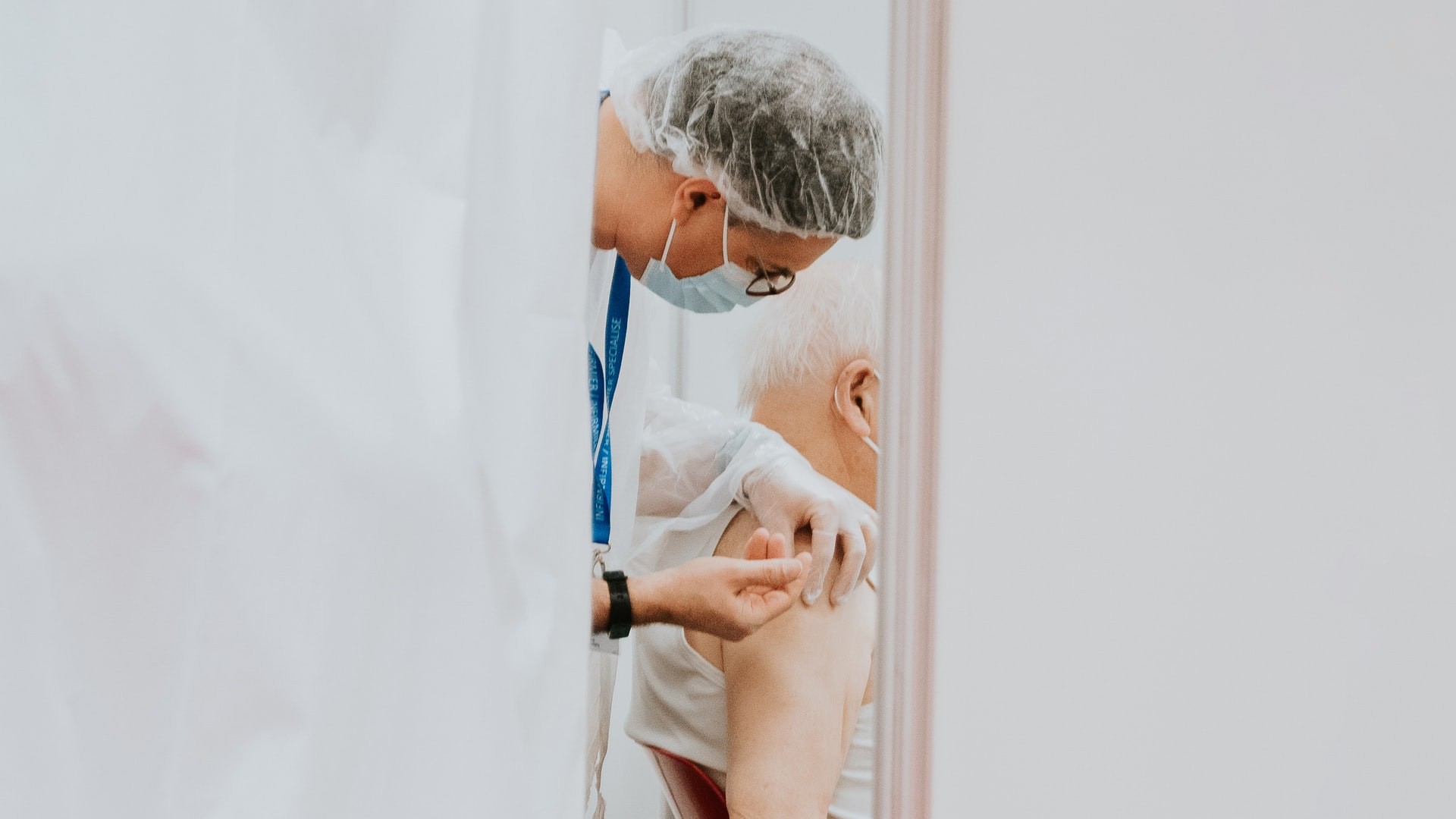

Click here to see all of PopSci’s COVID-19 coverage.
As cases fall in the US, schools prepare to reopen in the fall. Booster shots are also being trialed and sniffer dogs could be the new frontrunners of COVID-19 testing.
Here’s what else unfolded over the past week.
Sniffer dogs could be used to detect COVID-19
Dogs could be our newest line of defense against the coronavirus. A slew of new research indicates that dogs can be trained to detect COVID-19 in the human body as sweat and saliva react to coronavirus infection.
Studies have shown that dogs can be trained to identify COVID-19 in patients with roughly 82 to 99 percent sensitivity and 84 to 98 percent specificity. Sensitivity was measured by the dog’s ability to correctly detect an infection, while specificity was defined by how well the test avoided giving false positives. In a French study, 15 of 21 dogs were able to detect COVID-19 with a sensitivity of 90 percent or more.
As research grows, sniffer dogs are already at work in some places. NBA games, construction firms in Finland, an airport in Lebanon and public spaces like malls in the United Arab Emirates have already started using sniffer dogs to screen attendees for the coronavirus.
While there are still some questions to be answered such as whether the dogs could distinguish between other viruses and vaccinations, the World Health Organization is already coordinating an international task force to investigate how effectively we can use sniffer dogs to detect infections.
Pfizer begins testing a simultaneous COVID booster shot-pneumonia vaccine combo
Pfizer Inc. has begun a trial testing out a new pneumococcal vaccine candidate, 20vPnC, with a third, booster dose of the Pfizer-BioNTech COVID-19 vaccine.
The study includes 600 individuals over 65 who have already been fully vaccinated against the coronavirus. The participants received their second dose at least six months prior to entering this new study.
20vPnC is being developed to provide protection against the majority of invasive pneumococcal diseases like pneumonia. The study aims to evaluate whether combining vaccines is safe and how the immune system might respond to a pneumonia vaccine in the presence of an existing COVID-19 vaccine.
[Related: Which COVID-19 vaccine is the best?]
While there is no official CDC guideline yet, it is possible that most people will require an additional COVID-19 booster shot. But currently, there does not seem to be consensus within the scientific community on booster shots.
US Surgeon General Dr. Vivek Murthy told CNN that Americans should prepare to have a COVID-19 vaccine booster shot within a year. While Dr. Anthony Fauci, director of the National Institute of Allergy and Infectious Diseases told NBC News, “The bottom line is, we don’t know if or when we will need booster shots … but it would be foolish not to prepare for the eventuality that we might need it.”
Osaka, Japan hit by coronavirus surge
Japan’s second-largest city, Osaka, is facing another wave of coronavirus infections, renewing concerns about the upcoming Olympics this summer. The city is running out of beds and ventilators as doctors warn of a “system collapse.”
Only around half of Japanese medical staff have been fully vaccinated, prompting growing concern over how the healthcare system will cope with a huge international sports event. Currently, large parts of Japan are in a state of emergency in order to allow regional authorities to take protective measures against the surge.
As cases keep rising in Osaka, healthcare workers and families of patients are drawing attention to the overburdened system in crisis. In contrast, Olympic organizers and government officials are gearing up to go ahead with the games in July.
New York City schools to reopen in-person this fall
Mayor Bill de Blasio of New York City announced that the largest school system in the country will be all in-person this fall.
This move means roughly 1 million students will be returning to their classrooms full-time. There are expected to be some versions of coronavirus protocols still in place, such as mask wearing and testing. There will, however, be no remote learning options.
“We still have concerns about the safety of a small number of students with extreme medical challenges,” said the union head of the United Federation of Teachers. “For that small group of students, a remote option may still be necessary.”
People of color have been disproportionately harmed and affected by the pandemic and its downstream effects. There have also been higher levels of hesitancy, specifically among Black families, about returning to in-person schooling.
Going back to the classroom will be a boon for the many students who struggled to stay engaged with online learning. But steps will need to be taken to bridge this trust gap if kids are going to have to return to the school in fall.